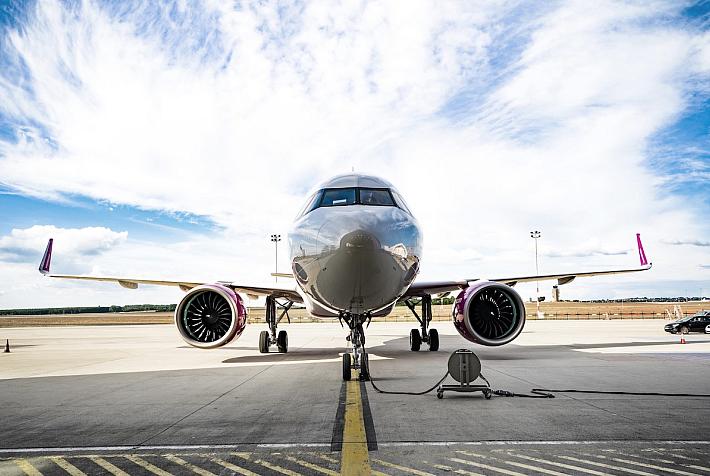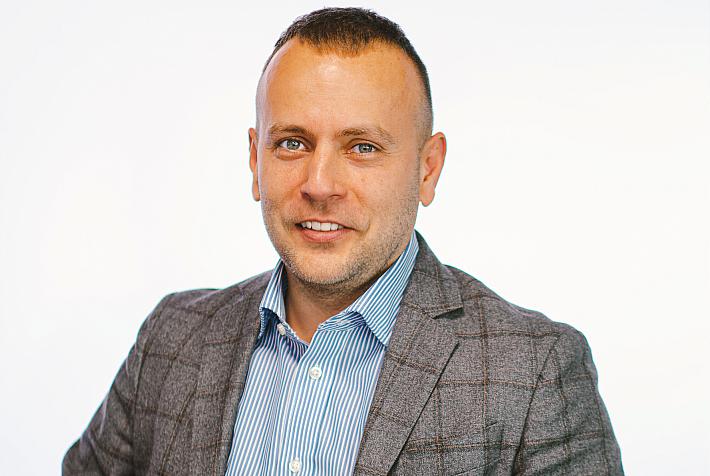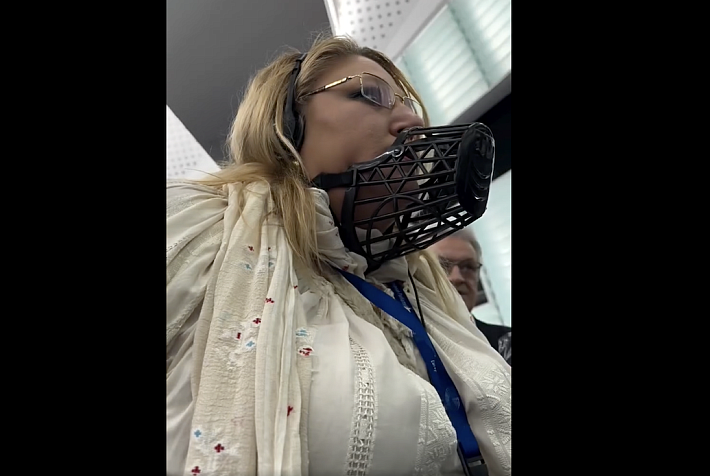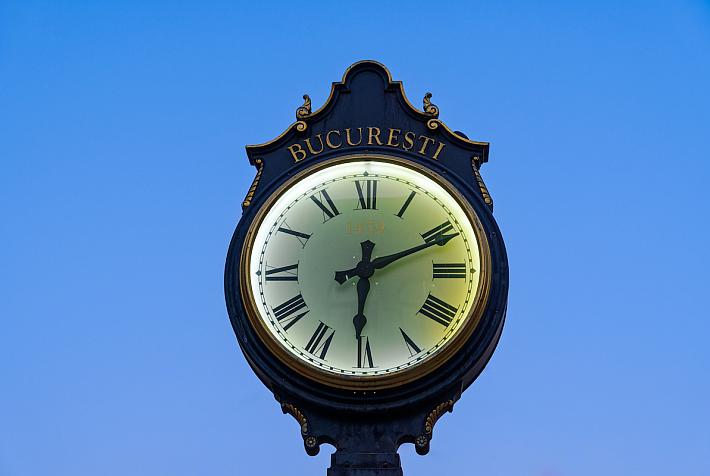François Bloch, CEO BRD Groupe Société Générale: Our goal is to become a leader in green finance in Romania
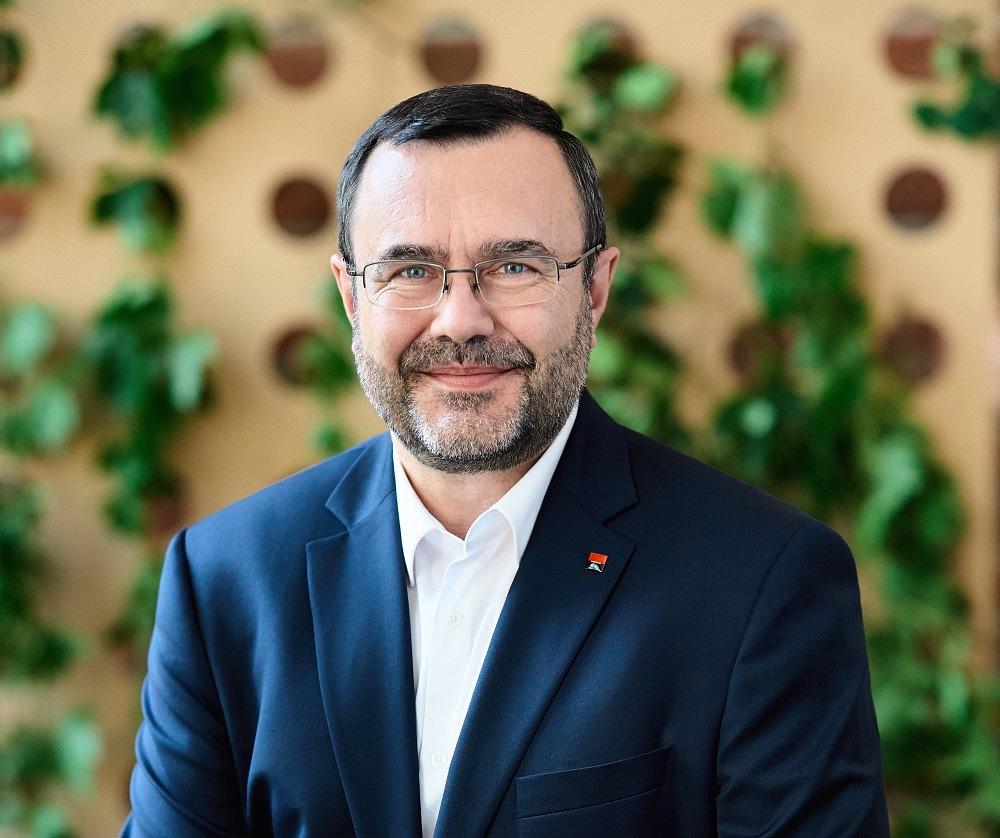
Sustainability is high on every company’s agenda these days as pressure from governments, regulators, investors, clients and society as a whole is pushing the business environment to adopt responsible business practices and minimize their negative impact on the environment. We have asked our partners from the Sustainability Meets Profitability event to share their views on sustainability and elaborate on their initiatives in this area.
In this interview, François Bloch (in opening picture), CEO of BRD Groupe Société Générale, one of the biggest financial groups in Romania, talks about the group’s sustainability agenda and goals.
“We have important ambitions in the ESG field: to support our clients in the energy transition process and become a leader in green finance in Romania,” François Bloch says.
“As early as 2021, we have positioned ourselves as a pioneer by providing the largest green loan in Romania, worth EUR 250 million, and by brokering the first corporate bond issue linked to sustainability objectives. Our ambition is to provide, by 2025, cumulatively, sustainable financing of over €1 billion,” he adds.
Besides financing sustainable projects, BRD Groupe Société Générale is pushing the sustainability agenda in Romania through the Climate Change Summit, the most important ESG event that has been organized so far in Romania, which will have its second edition in October.
Read the full interview below:
How would you define sustainability in the financial sector?
In the financial sector, which is very complex and has ramifications in most areas of society, we can talk about sustainability in at least two directions.
First, it is about core business, about how banks do their job sustainably. This means concrete actions, from how and to whom you provide finance, to your footprint on society. As you know, across the European banking system, there is a move away from financing certain large polluting industries. Société Générale Group, of which BRD is part, is committed to aligning its portfolios to carbon-neutral trajectories by 2050, prioritizing the most carbon-intensive sectors (oil and gas, coal, power generation) and setting interim targets.
Second: if we look at our footprint on society, we can also approach this from two perspectives. The first is as a producer of carbon emissions. From this perspective, our commitment is to reduce our own carbon emissions by 50% by 2030, by acting on the energy needed for buildings, IT, air travel and the vehicle fleet. We have also decided to ban the use of single-use plastics at the workplace.
We are also investing in ESG training programs for our employees in order to enable everyone to act responsibly and become actors in the energy transition themselves.
The second perspective is the footprint we leave as a socially responsible company, as supporters of culture, education and sport.
Consequently, as a bank, we have a complex profile in terms of sustainability policies, and a social responsibility to match.
What are BRD’s sustainability goals in the short, medium and long term and how do you plan to meet those goals?
We have important ambitions in the ESG field: to support our clients in the energy transition process and become a leader in green finance in Romania.
As early as 2021, we have positioned ourselves as a pioneer by providing the largest green loan in Romania, worth EUR 250 million, and by brokering the first corporate bond issue linked to sustainability objectives. Our ambition is to provide, by 2025, cumulatively, sustainable financing of over €1 billion.
Our Horizons 2025 strategic plan details our ESG journey around four main objectives:
- Foster the sustainable transition, by accompanying all client segments in their transitions with innovative solutions to serve their needs
- Build a culture of responsibility, by maintaining the highest standards of governance, with a corporate purpose that drives our values and mindset
- Have a positive local impact, by being a catalyst for positive societal and economic impact for communities across geographies
- Be a responsible employer, by offering an attractive, inclusive and engaging working environment
Please give us an example of a sector-specific sustainability initiative or project that you are working on and that you are particularly proud of.
At BRD, we support and contribute to the achievement of the UN Sustainable Development Goals (SDGs), which cover all areas of economic and social life, from economic value generated to climate change, quality education, gender equality, healthy living, innovation, responsible consumption. Our sustainability goals in the business area are matched by those in the human resources area, where being a responsible employer means encouraging and supporting diversity and gender equity, or having goals related to reducing our carbon footprint by investing in more environmentally friendly equipment and infrastructure.
In fact, we are among the eight companies listed on the BVB that were analyzed by Sustainalytics in the beginning of this year, obtaining the first sustainability scores among the companies listed on the Bucharest Stock Exchange. For us, the score we achieved - 19.2 - Low Risk, confirms that we are on the right track. This score ranks BRD 19th out of 422 regional banks.
Also, between 2019 and 2022, we succeeded in reducing by 25% our own CO2 emissions.
Last year we launched a full range of green loans for retail customers, with financing products for both personal needs and green home purchases. In addition, in the context of our goal to provide €1 billion of sustainable financing by 2025, we continued to be active in the market, recording several other significant transactions, including those with Speedwell and Nepi Rockcastle, long-standing BRD clients.
But I would also like to mention the event that I am extraordinarily proud of, because it is the most important ESG event that has been organized so far in Romania: the Climate Change Summit, an event that we initiated and organized together with our partners at Social Innovation Solutions, watched by almost 800,000 people around the world, and which will have its second edition in October this year.
Do the new regulations help speed up or slow down your sustainability agenda? Are the new sustainability regulations in the financial sector in line with your goals?
The purpose of the regulations is precisely to facilitate the green transition, so from this point of view there are no issues of adaptation or possible non-alignment with our targets or those of the banking sector in general. The sustainability regulations are the result of a long negotiation process, they cover the whole European Union and are taken on board by all Member States, which have a clear interest in sticking to the agenda.
What external forces are playing the biggest role in pushing your sustainability agenda – clients, suppliers, financing institutions, investors/shareholders, regulators?
The "greening" of the European economy is a gradual and planned process. The EU's "Fit for 55" legislative package, which aims to reduce greenhouse gas emissions by 55% by 2030 compared to 1990 levels, envisages achieving climate neutrality by 2050, but for the time being there are still no green alternatives for a whole range of activities or industries whose immediate closure would be disruptive to economies and cause significant social tensions. Banks have foreseen a gradual exit from polluting industries in line with public policy projections at national and EU level and with documents related to sustainable financing, in line with the EU Taxonomy.
Consequently, we talk about a transition process that is unprecedented in history, and while banks are indeed actors in this complex process, they are not the ones leading it. The main drive, if we can call it that, is coming from customers, be they companies or individuals, and investors. The need for finance is growing, commercial projects are moving up orders of magnitude, and at the level of the general public we see a growing awareness of the need for sustainability.
Can you give an example of a sustainability project outside your company (something that others do) that you find particularly inspiring?
Fighting against waste and food waste in particular seems to me one of the most topical issues in the context of sustainability. Food resources are not unlimited, so it is desirable to manage them as efficiently as possible. In a broader context, Romania ranks 9th in the EU on food waste: every day, 6 000 tonnes of good food for consumption and 2.2 million tonnes of food end up in landfill every year. Wasted food means money thrown away.
From this point of view, the app Bonapp.eco stands out among the initiatives currently underway in Romania, both at company level and in the entrepreneurial environment, bringing value to its users and helping reduce waste.
François Bloch has been CEO and member of the Board of BRD Groupe Société Générale since December 2016. A graduate of the Ecole Nationale de la Statistique et de l'Administration Economique (ENSAE) in Paris, François Bloch has spent his entire career with the Société Générale Group, holding management positions in Société Générale subsidiaries in Germany and the US, as well as in the Group's headquarters in Paris. Since 2012, François Bloch's career has been linked to the international retail banking area of the Société Générale Group, first as First Vice-Chairman of the Board of Directors of Rosbank, and since December 2016, as Chief Executive Officer (CEO) and member of the Board of BRD - Groupe Société Générale.
_____________________________
*This interview was edited by Romania Insider for BRD Groupe Société Générale.








